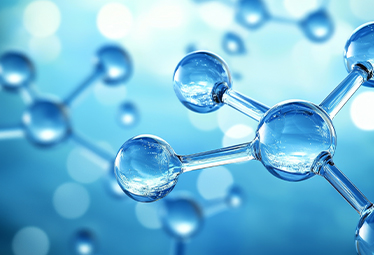 Adenosine triphosphate, more commonly known as ATP, is one of our body's most important molecules. It plays a crucial role in the production and transfer of energy within our cells. Without ATP, our muscles could not contract, our brains could not function, and even the simplest of cellular movements would be impossible. But what exactly is ATP, and why is it so fundamental to our bodies?
Adenosine triphosphate, more commonly known as ATP, is one of our body's most important molecules. It plays a crucial role in the production and transfer of energy within our cells. Without ATP, our muscles could not contract, our brains could not function, and even the simplest of cellular movements would be impossible. But what exactly is ATP, and why is it so fundamental to our bodies?
1. What is ATP?
ATP, or adenosine triphosphate, is a small molecule made up of three main parts:
- A nitrogenous base: adenine.
- A sugar: ribose.
- Three phosphate groups attached in a chain.
This particular structure gives ATP its unique energy properties. The links between the phosphate groups are energy-rich. When ATP splits to form ADP (adenosine diphosphate) by releasing one of its phosphates, a large amount of energy is released for use by the cell.
2. How is ATP produced?
ATP is mainly produced in the mitochondria, known as the ‘energy power plants’ of cells. ATP production involves several metabolic processes, the most important of which are :
- Glycolysis: this stage takes place in the cytoplasm of the cell and breaks down a molecule of glucose to produce a small amount of ATP.
- The Krebs cycle: also known as the citric acid cycle, this takes place in the mitochondria and converts the products of glycolysis into usable energy.
- The electron transport chain: this is the final process that generates the greatest quantity of ATP by using oxygen to convert electrons into energy.
These three processes work in synergy to provide a continuous supply of ATP, essential for all the body's vital functions.
3. The role of ATP in the human body
ATP is considered to be the cell's ‘energy currency’. It is involved in many biological processes:
- Muscle contraction: ATP provides the energy needed for muscle fibres to contract. This is what enables us to move, walk or even breathe.
- Nerve transmission: neurons use ATP to transmit nerve signals. This is how our brain communicates with the rest of our body.
- Synthesis of biomolecules: the manufacture of proteins, DNA and RNA requires the energy of ATP to add the different molecular building blocks together.
- Active transport: many molecules cannot cross cell membranes without the help of specific transporters, which also depend on ATP.
4. Why is ATP so important for older people?
ATP production tends to decline with age. This can be explained by a drop in the efficiency of mitochondria and a reduction in our cells' capacity to use energy. The result is increased fatigue, slower recovery after exercise and, sometimes, a reduction in general vitality.
Some researchers believe that this reduction in ATP could contribute to the onset of several age-related diseases, such as neurodegenerative disorders (like Alzheimer's disease) or muscular disorders. It is therefore crucial to support ATP production through a balanced diet, regular physical activity and, if necessary, specific food supplements.
5. How can ATP production be optimised?
- Eat a diet rich in nutrients: B vitamins, magnesium and coenzyme Q10 are essential co-factors in ATP production.
- Regular physical activity: exercise stimulates ATP production by increasing the number of mitochondria in muscle cells.
- Try magnet therapy: the use of magnets promotes better muscle recovery and supports energy production at cellular level.
All this highlights the fact that ATP is much more than just an energy molecule: it is the foundation of all our vital functions. Understanding its role and knowing how to optimise its production is essential, particularly for senior citizens. By adopting a healthy lifestyle, incorporating key nutrients and exploring new approaches such as magnetotherapy, it's possible to maintain optimum vitality and make the most of the years ahead.
Remember: taking care of your cellular energy means taking care of your overall health!
